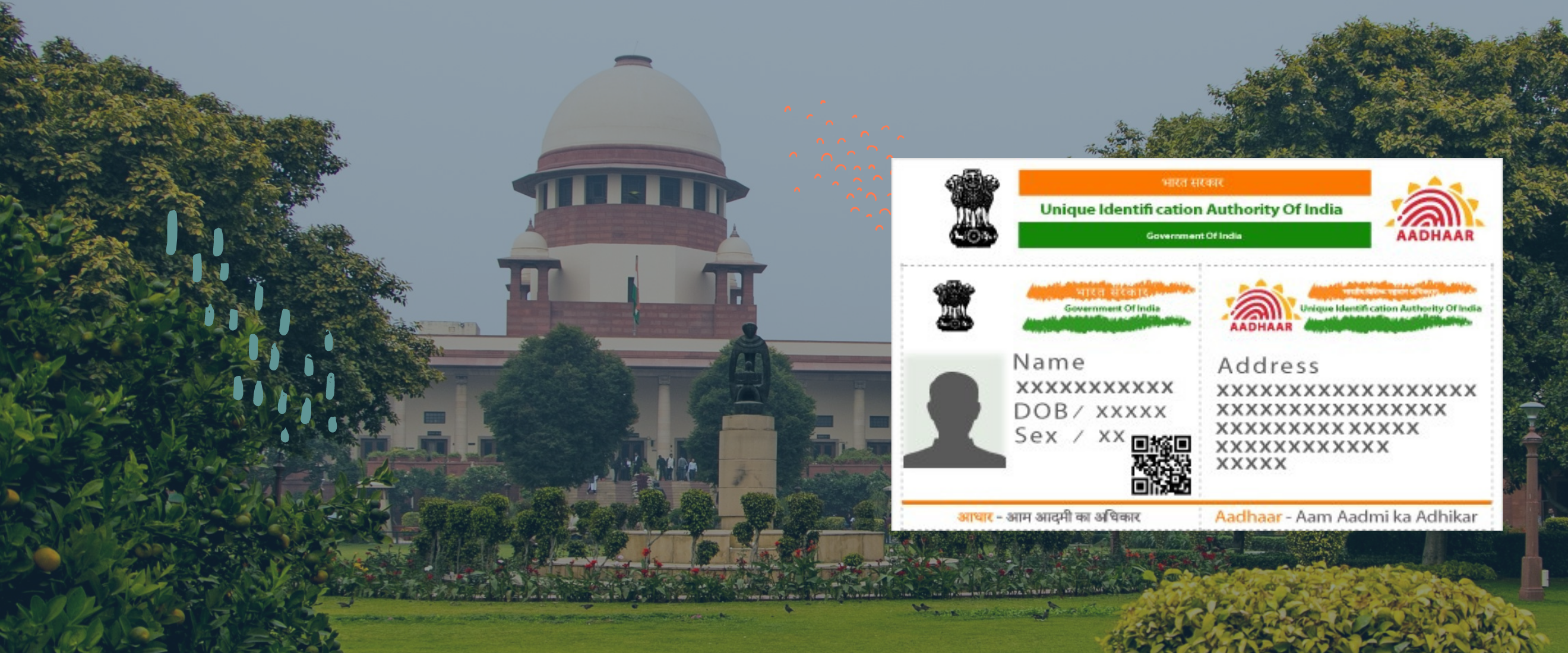Analysis
Constitutionality of Aadhaar: 6 Must Reads
Here are some must-reads on the constitutionality of Aadhaar

On September 26th 2018, the Court upheld the constitutional validity of the Aadhaar Act, while striking down certain provisions as unconstitutional. The Bench produced three separate opinions. The majority opinion was written by Justice Sikri on behalf of Chief Justice Misra, Justice Khanwilkar and himself. Justice Bhushan wrote a concurring opinion. Justice Chandrachudwrote a dissenting opinion.
The majority upheld the constitutionality of Aadhaar, but it struck/read down certain provisions of the Aadhaar Act and the UIDAI Regulations. Crucially, the majority opinion did not strike down Section 7, which makes Aadhaar mandatory for availing State subsidies, benefits and challenge.
1) Malavika Prasad in a two-part series for the First Post analyses the judgment of the Supreme Court of India in KS Puttaswamy versus Union of India, which upheld the validity of the Aadhaar project.
Part I – Aadhaar verdict: SC’s majority judgment lacks consistency in logic and reasoning, turns constitutional analysis on its head
Part II – Aadhaar verdict: Dissenting judge Justice DY Chandrachud feels Money Bill tag may be misused to escape Rajya Sabha scrutiny
2) Finding an equilibrium – Upendra Baxi writing in The Hindu sharply critiques the majority judgment for holding that Aadhaar was rightly passed as a Money Bill.
3) Ill Fares Aadhaar – Writing in Indian Express, Jean Drez says that “Despite some thoughtful lines, the recent Supreme Court judgment on Aadhaar perpetuates double standards in the way Aadhaar is imposed on the poor and the privileged. The middle class is largely off the hook, except for the compulsory linkage with PAN cards. The poor, however, are left where they were — exposed to the ordeal of Aadhaar seeding and authentication for every social benefit, however tiny.”
4) What the majority missed – Kapil Sibal writing in The Indian Express criticises the majority judgment for creating a distinction between privileged and disadvantaged sections, in context of right to privacy and choice.
5) Judicial Review and Money Bills – In this 2017 NUJS Law Review Article, Pratik Datta, Shefali Malhotra & Shivangi Tyagi focus on the scope of Money Bill and the controversy surrounding the Speaker’s power to term a Bill as Money Bill.
6) Aadhaar valid, but restricted, and still a problem – Vrinda Bhandari criticises the judgment for upholding the constitutionality of Section 7 which made Aadhaar compulsory for social security benefits and fundamental entitlements.
Resources
- Vrinda Bhandari, Aadhaar valid, but restricted, and still a problem, Deccan Herald, Sep 26, 2018
- Pratik Datta, Shefali Malhotra & Shivangi Tyagi, Judicial Review and Money Bills, NUJS Law Review, Volume 10 Issue 2 (2017)
- Kapil Sibal, What The Majority Missed, The Indian Express, Oct 4, 2018
- Jean Dreze, Ill Fares Aadhaar, The Indian Express, Oct 2, 2018
- Upendra Baxi, Finding an Equilibrium, The Hindu, Sep 28, 2018
- Malavika Prasad, Aadhaar verdict: Dissenting judge Justice DY Chandrachud feels Money Bill tag may be misused to escape Rajya Sabha scrutiny, First Post, Oct 1, 2018 (Part II)
- Malavika Prasad, Aadhaar verdict: SC’s majority judgment lacks consistency in logic and reasoning, turns constitutional analysis on its head, First Post, Sep 29, 2018 (Part I)